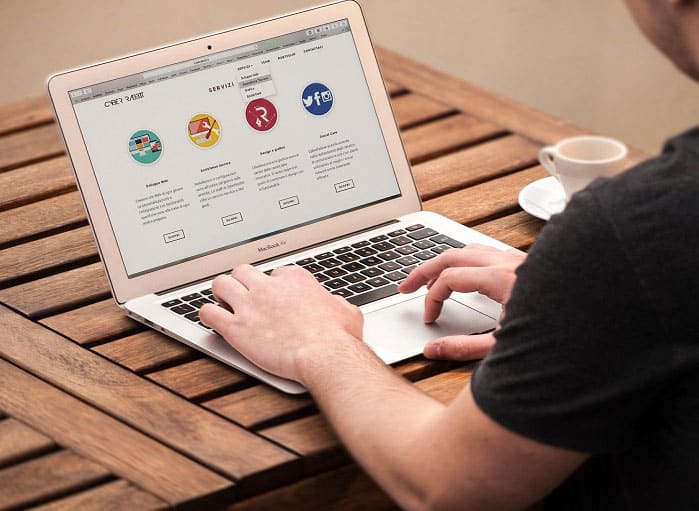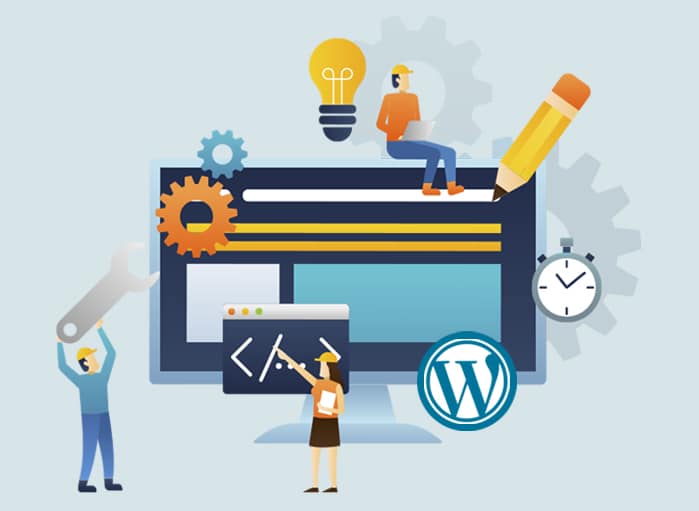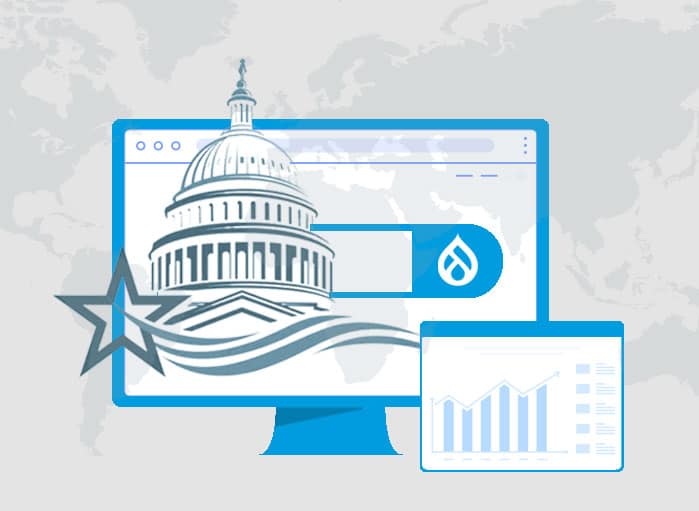
Drupal 8 to 9 Upgrade: Prepare for a Smooth Transition
Tags: Drupal,Upgrade
eWay Corp April 30, 2020 2 MIN READ

Recently there has been a lot of buzz about Drupal 9. Like every other major upgrade, the users are anxious about how challenging the Drupal 8 to 9 upgrade might be. Let’s address some common concerns we’ve heard regarding the upgrade and alleviate some of your worries.
With the launch of Drupal 9, Drupal 7 & 8 will reach their end
To begin with, if you’re running on Drupal 7 or 8, you will receive continued community support until November 2021. If you are worried that the support will end on June 3rd, 2020 when Drupal 9 will be officially launched, you shouldn’t.
In the past few years, every new major version of Drupal has seen a break from the last major upgrade. There was hardly any guarantee of compatibility between the older and new versions. The disruptions in compatibility have always outnumbered the benefits, making users unhappy.
The plans for Drupal 9 have significantly changed and it has been assured that it will require fewer efforts for the upgrade. Most of the important changes in Drupal 9 will first be released in Drupal 8, which will run parallel to the existing functionality of D8 before the official launch.
With ample time given to module maintainers to add support for the new APIs before the official launch of Drupal 9, users will benefit from their current Drupal 8 installation base. In other words, the Drupal 8 to 9 upgrade will be easy compared to the older versions.
Drupal 8 and Drupal 9 will be the same
Drupal 9 requirements will mostly remain the same as Drupal 8. You will have the same user experience and the same great features. Now you might be wondering why upgrade then? A major reason for this new release is code clean-up.
Drupal 8 included a new innovative model where you’d receive minor releases every 6 months. With these new releases, a number of new features were added to the platform. The new features enabled users to find new and improved ways to solve problems, but with each new implementation, the code would become diminish in value, leading to compatibility issues.
With Drupal 9, you no longer require that older code for compatibility. Now, you have the opportunity to remove everything that you no longer need for the platform to run smoothly. You’ll be able to have a cleaned-up version of Drupal 8 built on the same code, with the deprecated code removed.
The other reason for the major release is related to third-party dependencies. With Drupal now integrated with PHP projects like Drupal 9 Symfony and Twig, the CMS now will adhere to vendor support lifecycles of these projects. Drupal 9 will have the supported versions of software such as Symfony 4/5 and Twig 2 with the least hassle.
With Drupal 8 to 9 Upgrade, we’ll lose some features of Drupal 8
You will have all the functionalities and features of Drupal 8 that have been revised, added, and updated in the last 5 years including:
- Media – Uploading and reusing videos, images with other assets
- API-first Support – Using Drupal as the content back-end for mobile applications and JavaScript front-ends
- Layout Builder – Providing different content layout options
- Mobile experience – Including responsive design in all functionalities and an admin toolbar which automatically adjusts to any screen size
- BigPipe – Improving performance feature by allowing main content of the page to be sent and generating auxiliary content and sidebar simultaneously
Migrate to Drupal 8 or wait for Drupal 9 upgrade?
Going for a Drupal 7 to 9 upgrade will require a rebuild. But if you’re planning to start a project in 2020, it’s best to postpone it till Q3 2020 and go ahead with Drupal 9. However, you can’t ignore that Drupal 8 has a number of compelling features and functionalities which makes it worth a try. Those who are facing challenges in Drupal 7 should move to D8.
If you are happy with Drupal 7, you can delay the upgrade process until Q2 of 2020. You just need to plan ahead about the site refinements. It’s best to avoid modules that are no longer supported by Drupal 8. Ask your development team to focus on migrating to Drupal 8 and keep track of API degradation in D9. It’s time to sort out the modules that are no longer D9-compatible and ensure that no custom codes use deprecated D8 functionality.
Once you are done with these adjustments and content has been migrated from Drupal 7 to Drupal 9, there’s only one thing to do. You need to figure out whether you want to go live on D9 (if it’s ready) or go live on D8 and later upgrade to D9.
Getting ready for Drupal: What you Need to Know
There’ll be a number of Drupal 9 benefits, but it will have no new features compared to the latest versions in D8. Rather, the upgrade is more focused on making a smooth transition from D8 to D9. But as a user, you should pay close attention to the planned deprecated codes that are already announced in D9. Removing the redundant codes will ensure a smooth user experience in Drupal 9.
If you plan your Drupal 8 to 9 upgrade now with a migration plan in place, the transition will be seamless. As a team, you only need to ensure you are avoiding APIs in D8 which will depreciate in 9.
With the release of Drupal 9.1 in December 2020, you may expect some new features. As long as you have the latest D8 updates, and don’t use deprecated modules and APIs and rely on supported dependencies, you are sorted for an amazing Drupal 9 experience.
A Quick Recap about Drupal 8 to 9 Upgrade
- Drupal 9 will be officially released on June 3rd, 2020. It will be released with an LTS (Long-Term Support) Drupal 8.9 minor release.
- Drupal 8 will reach its end-of-life in November 2021, and Drupal 7 will be supported until the same time.
- Drupal 9 will be compatible with major modules that worked on Drupal 8, so no drastic rewrites are required.
- Ensure that your Drupal 9 environment is compatible with PHP 7.3 or later, MySQL 5.7 or later, Composer 1.9.1 (the same requirement as D8.8), & Drush 10 (if only you are using Drush).
- If your site doesn’t use any deprecated code already scheduled for removal, the upgrade to D9 will be seamless.
- The key benefit of D9 over other versions is that the platform will have maximum security support even after support is lifted from D8. In the case of contributed modules, the updates will depend mostly on module maintainers.
- If there are any custom codes available on the site, you can use the checking tools for deprecated code checking and fix the issues locally.
With our expertise in creating Drupal websites, we ensure that our clients have the best user experience on their websites. Our aim is to create a reliable and performance-driven website which will complement your business. Take some time to go through our website and let us know how we can help in adding value to your brand.



